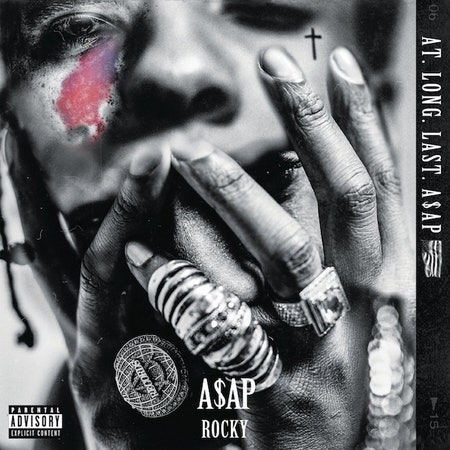We are in the age of the curator, from meticulously-arranged, aspirational Tumblrs to Drake’s recent stint at Sotheby’s. As it’s grown easier to translate our identities through these careful assemblages of stuff we fuck with, good taste has taken on a new leveraging power. A$AP Rocky, the baby-faced fashion killa and primary figurehead of zeitgeist-wheelie-poppin’ Harlem goon squad A$AP Mob, has always understood this better than anyone else in the rap game. As he should: his own success can be directly traced to early promo on his mentor and A$AP Worldwide co-owner A$AP Yams’ highly influential RealNiggaTumblr, one of the savviest indie-to-major reconnaissance missions this century. That triumph of personal taste has been one of the reasons Rocky’s resonated most with this generation of rap fans and beyond, but it’s also led to his most persistent critique: all vibe, no substance. In between the conceptual Instagram stunts and Harry Potter-themed sartorial wisdom, it’s hard not to wonder about the Rakim Mayers beneath the swaggy labels, and if we’d ever get a lasting impression of his point of view beyond the infinite affirmations that it is, indeed, lit.
There’s been a two-plus year gap between Rocky’s sophomore studio album, At.Long.Last.ASAP, and his chart-topping major label debut, during which he dabbled in fashion design, modeled for Ferragamo, and made his acting debut in Sundance darling Dope. But the most glaring change between then and now is the absence of Yams, or Steven Rodriguez, who died this January at 26 of a drug overdose. Yams’ presence was mostly behind-the-scenes (though he’d often appear in the videos, in all his jiggy splendor), but he was the heart and soul of the A$AP Mob, and Rocky’s success is no short of unfathomable without his guidance. With A.L.L.A.—executive produced by Yams, along with art-rap auteur Danger Mouse—he presents to the world one last relic of he and his best friend’s collaborative vision, and though the album was reportedly completed before Yams’ death, it still feels like an elegy to the closest thing the millennial generation had to its own Diddy or Dame Dash.
Rocky remained understandably private in the aftermath of Yams’ passing, but on A.L.L.A., he seems more open than ever: to the healing properties of hallucinogens, to be sure, but also to revealing parts of his personality that go beyond surface-level. To an extent, this may reflect his recent antipathy towards the much-hyped labels with which he once associated. But it seems more likely a result of growing up, gaining steadier footing in the industry his squad gate-crashed, and coming to terms with himself as more than just a sum of his inspirations and logos. At long last, a real sense of identity has begun to coalesce in Rocky’s work.
